Denial and Avoidance as the Root of all Evil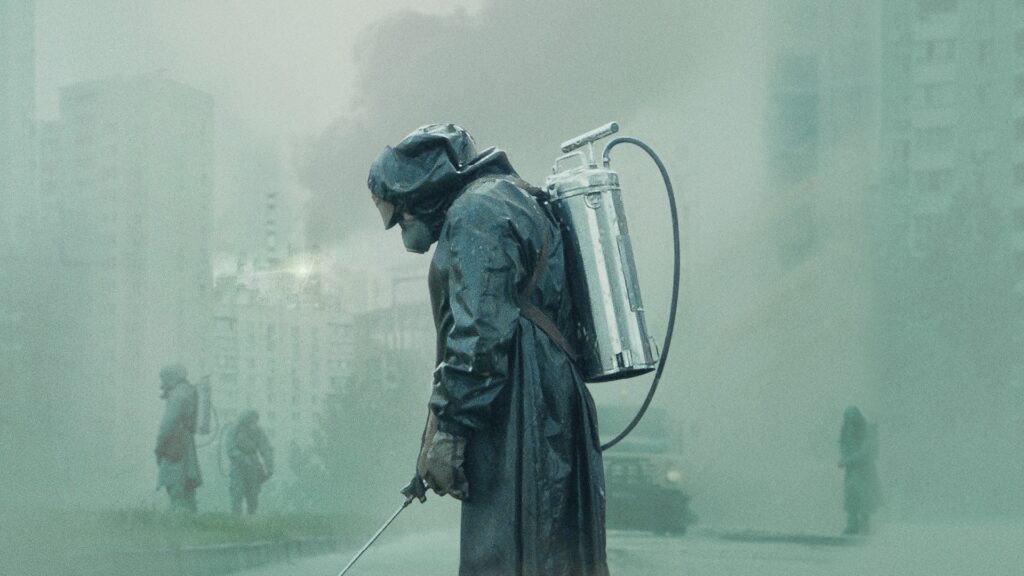
Denial and Avoidance as the Root of All Evil: Lessons from Chernobyl for Personal and Societal Growth
Introduction: The Echoes of Chernobyl
In the haunting HBO miniseries “Chernobyl,” a scene unfolds that serves as a powerful metaphor for the human tendency towards denial. A character repeatedly insists that RBMK reactors cannot explode, even as the smoldering ruins of the reactor lie before him. This moment encapsulates a truth that extends far beyond the confines of nuclear disaster – the dangerous human capacity for denial in the face of overwhelming evidence.
The Chernobyl disaster stands as a stark reminder of how denial and avoidance, when manifested on a systemic level, can lead to catastrophic consequences. But the lessons of Chernobyl are not confined to the realms of nuclear physics or Soviet bureaucracy. They offer profound insights into the human psyche, the nature of personal growth, and the challenges we face both as individuals and as a society.
The Anatomy of Denial: From Personal to Societal
The Individual’s Struggle with Reality
Just as the Soviet authorities refused to acknowledge the design flaws in the RBMK reactors, we often struggle to admit our own “design flaws” – the aspects of ourselves that may be holding us back or causing harm to ourselves and others. This denial is not merely a matter of stubbornness or ignorance; it’s a complex psychological mechanism rooted in our deepest fears and insecurities.
Consider the character of Anatoly Dyatlov in “Chernobyl.” His refusal to accept the severity of the reactor explosion mirrors a common human tendency to downplay or dismiss information that challenges our worldview or threatens our sense of security. In our personal lives, this might manifest as refusing to acknowledge a toxic relationship, an unhealthy habit, or a career path that no longer serves us.
The Societal Implications of Collective Denial
When denial occurs on a societal level, the consequences can be far-reaching and devastating. The Soviet Union’s inability to admit to the design flaws in the RBMK reactors led not only to the Chernobyl disaster but to a culture of secrecy and misinformation that exacerbated the suffering of countless individuals.
This pattern of collective denial is not unique to the Soviet Union or to the past. We see it today in the reluctance of some nations to address climate change, in the denial of historical atrocities, or in the refusal to confront systemic inequalities. Each instance of collective denial carries with it the potential for widespread harm and hindered progress.
The Unconscious Mind: Carl Jung’s Insights
Making the Unconscious Conscious
Carl Jung, the renowned psychoanalyst, emphasized the importance of making the unconscious conscious. He believed that the aspects of ourselves that we refuse to acknowledge or confront will ultimately control us, leading us to attribute our struggles and failures to external factors rather than taking responsibility for our own growth and healing.
In the context of Chernobyl, we can see how the unconscious fears and insecurities of individuals like Dyatlov, and of the Soviet system as a whole, led to decisions that exacerbated the disaster. The refusal to acknowledge the possibility of a reactor explosion was not just a technical error, but a manifestation of deeper, unexamined beliefs about infallibility and control.
The Shadow Self and Its Implications
Jung’s concept of the shadow – the part of our psyche that contains all the aspects of ourselves that we reject or deny – is particularly relevant when examining the themes of denial and avoidance. The shadow self isn’t inherently negative; it contains both our darkest impulses and our greatest potential. However, when we refuse to acknowledge and integrate our shadow, it can lead to projection, internal conflict, and self-sabotage.
In “Chernobyl,” we see the shadow of the Soviet system manifested in the reluctance to admit mistakes, the prioritization of image over safety, and the suppression of dissenting voices. On a personal level, our unexamined shadow might lead us to deny our own capabilities, to avoid taking risks, or to sabotage our relationships and opportunities for growth.
The Therapeutic Journey: Confronting Our “Design Flaws”
The Courage to Face the Unknown
The process of confronting our unconscious fears and insecurities is not an easy one. It requires courage, vulnerability, and a willingness to step into the unknown. In therapy, individuals are encouraged to explore their unconscious minds, to uncover the beliefs, patterns, and traumas that may be shaping their thoughts and behaviors.
This process mirrors the journey of the characters in “Chernobyl” who chose to confront the reality of the disaster, often at great personal cost. Valery Legasov and Ulana Khomyuk, in their pursuit of the truth, demonstrate the courage required to face uncomfortable realities and challenge ingrained systems of denial.
The Role of Self-Awareness and Acceptance
By bringing unconscious elements into conscious awareness, individuals can begin to understand themselves more deeply and develop the tools and strategies needed to overcome their challenges and achieve personal growth. This involves not only recognizing our flaws and weaknesses but also accepting them as part of our complete selves.
In the context of Chernobyl, true progress and healing could only begin when the full extent of the disaster was acknowledged and accepted. Similarly, in our personal lives, genuine growth and change can only occur when we’re willing to see and accept ourselves fully, including the parts we’d rather deny or avoid.
The Individual and Society: Microcosm and Macrocosm
Personal Insecurity Reflected in Societal Structures
The character of Anatoly Dyatlov serves as a microcosm of the insecurity and denial that plagued the Soviet Union during its final years. His personal refusal to acknowledge the severity of the reactor explosion mirrors the broader issues facing the country as a whole.
This reflection of individual psychology in societal structures is not unique to the Soviet Union or to Chernobyl. We can observe similar patterns in various contexts today, from corporate cultures that prioritize short-term gains over long-term sustainability to political systems that resist necessary reforms.
The Dangers of Isolation and Rigidity
Both individuals and societies that refuse to adapt and confront uncomfortable truths risk stagnation and collapse. The Soviet Union’s isolation and rigid bureaucracy hindered its ability to innovate and address the challenges it faced. Similarly, individuals who isolate themselves from new ideas or refuse to question their beliefs often find themselves stuck in unhealthy patterns.
The fall of the Soviet Union serves as a stark reminder of the consequences of systemic denial and the refusal to adapt. It underscores the importance of openness, transparency, and the willingness to confront uncomfortable truths, both in our personal lives and in our societal structures.
Overcoming Denial and Insecurity: The Path to Growth
Embracing Change and Discomfort
The journey of overcoming denial and insecurity is not a one-time event but an ongoing process. It requires a commitment to self-reflection, a willingness to challenge our own assumptions, and the courage to embrace change and discomfort.
In therapy, this might involve exploring childhood traumas, questioning long-held beliefs, or learning to sit with uncomfortable emotions. In our personal lives, it could mean having difficult conversations, taking calculated risks, or pursuing goals that push us outside our comfort zones.
The Importance of Shadow Work
Engaging in shadow work – the process of acknowledging and integrating the hidden aspects of our personality – is crucial for developing a more authentic sense of self. This work involves facing our fears, acknowledging our weaknesses, and embracing the parts of ourselves that we’ve long denied or suppressed.
By integrating our shadow, we can tap into a deeper sense of creativity, vitality, and authenticity. We become less controlled by our unconscious fears and insecurities, allowing us to make choices that align more closely with our true selves and values.
Lessons from Chernobyl for Personal and Societal Growth
The Chernobyl disaster serves as a powerful reminder of the dangers of denial and the importance of accepting reality, no matter how uncomfortable or daunting it may be. By embracing Jung’s call to make the unconscious conscious, we can begin to confront our own “design flaws” and embark on a journey of self-discovery and transformation.
This journey is not just about personal growth; it has implications for our broader society as well. As we learn to confront our own denials and insecurities, we become better equipped to address larger societal issues, from climate change to social inequality.
The lessons of Chernobyl teach us that true progress, both personal and societal, begins with the courage to face uncomfortable truths. By cultivating self-awareness, embracing change, and committing to ongoing growth and learning, we can work towards creating a more authentic, resilient, and compassionate world.
In the end, the story of Chernobyl is not just a cautionary tale about nuclear power or Soviet bureaucracy. It’s a profound metaphor for the human struggle with denial and the transformative power of confronting reality. As we navigate the complexities of our own lives and our rapidly changing world, may we have the courage to face our own “reactors” – the hidden flaws and denied truths that, left unacknowledged, have the power to shape our destinies.
Did you enjoy this article? Checkout the podcast here.

Bibliography:
Jung, C. G. (1989). Archetypes and the Collective Unconscious (2nd ed.). Princeton University Press. Campbell, J. (2008). The Hero with a Thousand Faces (3rd ed.). New World Library. Lifton, R. J. (1983). The Broken Connection: On Death and the Continuity of Life. American Journal of Psychiatry, 140(10), 1360-1361. Vaillant, G. E. (1992). Ego Mechanisms of Defense: A Guide for Clinicians and Researchers. American Psychiatric Publishing. Cushman, P. (1995). Constructing the Self, Constructing America: A Cultural History of Psychotherapy. Addison-Wesley Longman. Curtis, A. (2016). HyperNormalisation. BBC.
Further Reading:
Lifton, R. J. (1986). The Nazi Doctors: Medical Killing and the Psychology of Genocide. Basic Books. Bettelheim, B. (1960). The Informed Heart: Autonomy in a Mass Age. Free Press. Mitscherlich, A., & Mitscherlich, M. (1975). The Inability to Mourn: Principles of Collective Behavior. Grove Press. Bauman, Z. (1989). Modernity and the Holocaust. Cornell University Press. Hantman, S., & Zimerman, E. (2019). Intergenerational Transmission of Trauma: The Last Secret. Rowman & Littlefield. Crocq, M. A., & Crocq, L. (2000). From Shell Shock and War Neurosis to Posttraumatic Stress Disorder: A History of Psychotraumatology. Dialogues in Clinical Neuroscience, 2(1), 47-55. Whitfield, C. L. (1995). Memory and Abuse: Remembering and Healing the Effects of Trauma. Health Communications.








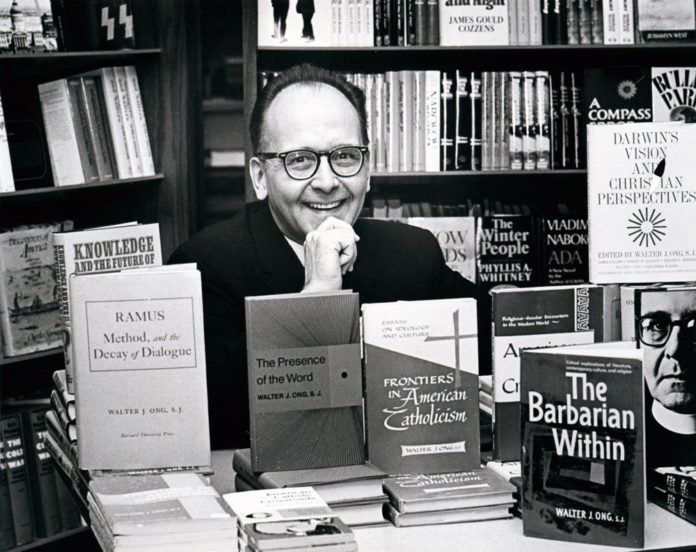




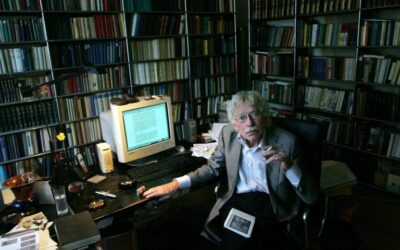

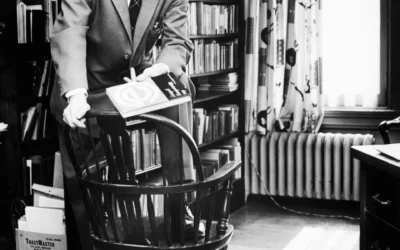

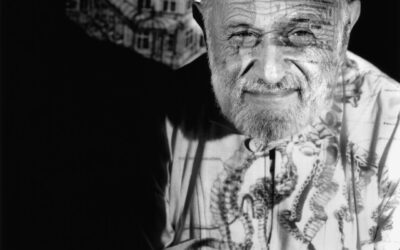
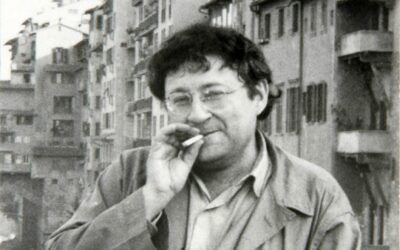




0 Comments